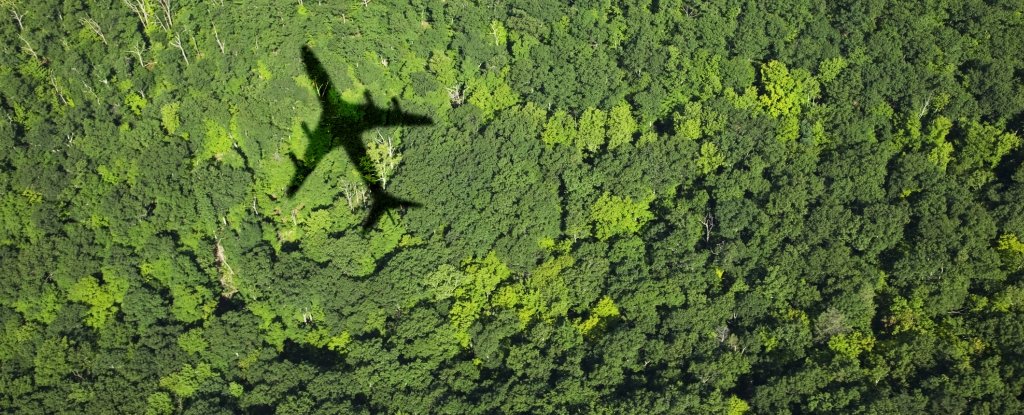
Although the aviation industry is essential for our modern world, it also puts a strain on the environment due to the emissions of petroleum-based fossil fuels.
A new study shows that switching to sustainable aviation fuel (SAF), derived from plants, could help reduce these emissions up to 68%. The non-edible oilseed crop Brassica Carinata, a mustard variety, was targeted. It could also be cheaper than petroleum fuel.
Puneet Dwivedi, sustainability scientist at the University of Georgia, says that if we can secure feedstock supply as well as provide appropriate economic incentives along the supply chains, we could produce SAFs based on carinata in the southern United States.
"Carinata-based SAF could reduce carbon footprint of aviation sector, while creating economic opportunities for the region and improving flow of ecosystem services throughout the southern region."
According to an Environmental and Energy Study Institute report, approximately 2.4 percent global carbon dioxide emissions were caused by aviation in 2018. These emissions contribute 3.5 percent to the anthropogenic climate change, according to a study that was published in January.
Although it may not seem like much at first glance, it is growing rapidly and alarmingly fast. However, carinata-based SAFs are becoming more and more feasible.
There are many challenges to transitioning to biofuels. They can potentially replace important food crops, and there are questions about whether or not it is possible to grow enough fuel crops. It also matters how and where the crop is grown. This will impact whether or not it reduces emissions.
However, the idea of using fuel derived from B.carinata isn't new. Although it was tested and developed years ago, the first flight with pure carinata-derived fuel was completed in 2012. However, the cost was significantly higher than traditional jet fuel.
Dwivedi's new research was not done to prove the fuel is feasible, but to determine how cost-effective it could be and what emissions it could reduce.
Conventional jet fuel costs approximately US$0.50 per Liter. The team calculated that SAF based on carinata is approximately $0.85-1.28 per Liter without subsidies.
However, governments offer incentives to reduce emissions that weren't in place in 2012. For example, the Sustainable Aviation Grand Fuel Challenge by the Biden Administration offers tax credits for a minimum of 50% reduction in emissions compared with conventional jet fuel.
The researchers discovered that a carinata-based SAF would cost between $0.12 to $0.66 per Liter if all US credits are taken into consideration.
"Current policies should be maintained to support the manufacturing and distribution SAF. Dwivedi stated that the Grand Challenge, announced by President Biden, could make a significant difference in supporting SAF production in southern regions based on carinata."
Carinata can also be grown in the southern states where the temperatures are more warm. It doesn't compete directly with other crops. Additionally, byproducts from fuel production can still used to make animal fodder.
This seems like an easy task, but the US lacks the infrastructure to turn the crop into fuel. Current research by the team focuses on the feasibility of such facilities. This will help inform policy-makers, investors, and farmers about the best options.
Dwivedi stated that Georgia is the sixth-largest user of conventional aviation fuel in the nation, has the busiest international airport, and is home of Delta, a major global airline company.
"I look forward to continuing my research to find a sustainable alternative for our current model of air travel. Carinata could be a win-win for rural areas, the aviation sector, and most importantly, climate change.
The research was published in GCB Bioenergy.
